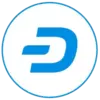Notice: Due to the hack in February and other recent issues XeggeX is shutting down and filing for insolvency. More information and legal contacts will be provided soon.
Max Supply: 0
Circulation: 12,322,571.39
Market Cap: $248,423,039
Listing Date:
2022-04-22, 07:34:00
Network:
Dash Main Chain
Asset Type:
Coin
Links
Social
Primary Markets (0 active)
Total Market Volume: ~$0
Liquidity Pools (0 Active)
Total Pool Liquidity: ~$0
| Market | Volume |
|---|
Hot Wallets
Deposit
Block #2296742 @ 5981.64 min ago
Balance: 0.25014700
Updated: 5980.47 min ago
Withdraw
Block #2295238 @ 9947.37 min ago
Balance: 0.04819298
Updated: 9945.69 min ago
About Dash
Dash (DASH) is a cryptocurrency created and designed to guarantee privacy. Launched in 2014, it was originally released as XCoin (XCO) before changing its name to ‘Darkcoin’. It was one of the first digital currencies to feature a decentralized blockchain governance system. It rebranded again in March 2015; its new name is an amalgamation of the words ‘digital cash’.The coin was created as a result of a Bitcoin fork in an attempt to improve on efficiency, speed, and anonymity. It is designed to be user-friendly and accessible, claiming to be the perfect option for people who are not interested in cryptocurrency. Transactions have low fees and are much faster than Bitcoin.Dash coins are obtainable through mining, running the network as a masternode, or by exchanging them for other tokens and fiat currencies. Anyone can form a masternode if they hold 1000 Dash in collateral. If a miner is willing to perform advanced functions (such as increased privacy and instant transactions) they can earn a 45% block reward. In April 2018, Dash's market capitalization was around $4.3 billion, it was one of the top 12 cryptocurrencies and its peer-to-peer network was one of the largest in the world.The founder of Dash is crypto developer Evan Duffield who began to work in programming when he was still in high school. He has held positions at a number of tech firms including Warped AI, iAcquire, Wells Fargo, and Verizon Wireless. Evan became enthralled with crypto after reading Satoshi Nakamoto’s whitepaper. When he realized the future importance of fintech, he went on to gain a series 65 license allowing him to become an investment advisor in the US.Dash is designed to have a total supply of 18 million coins with the circulating supply of Dash in 2018 hovering at around 7.4 million. The coin is set to reach its supply limit in the year 2300. Dash has a variable block reward which decreases at a 7.1 % rate each year. The average block mining time is 2.5 minutes on the Dash blockchain, which makes it four times faster than Bitcoin.Using a coin mixing service called CoinJoin, Dash allows you to send your funds privately by mixing it between several other transactions, making it harder to identify the specifics. For a slightly higher processing fee, it offers ‘Instant Send’ transactions (processed within 1.5 seconds).Dash also offers a shares scheme where users can allocate their coins to help incentivize masternodes, while receiving up to 8% of interest a year. This compares to traditional banks which offer around 0.8% return.Dash is listed on a large number of exchanges and it possible to exchange it for goods and services at a number of online organizations including online casinos, marketing agencies, and coffee merchants. Most sellers are based in the US and Europe. Over 2018 and at the beginning of 2019, Dash became extremely popular in Venezuela where the hyperinflation of the local currency had left locals unable to afford basic items or food.
Stable Connection
2025-07-04, 07:06:32 UTC


